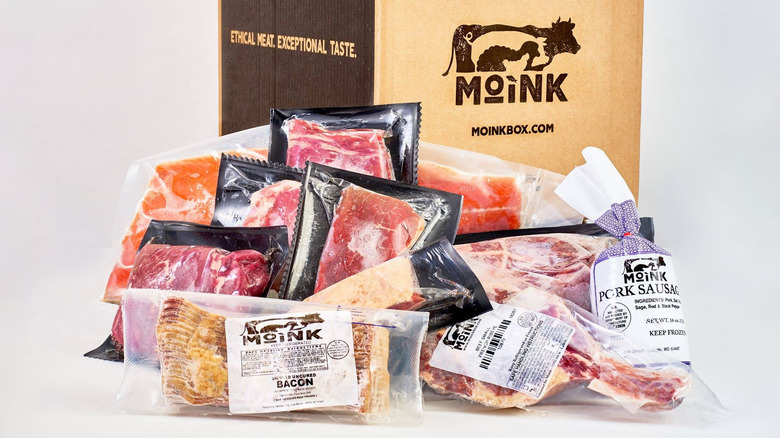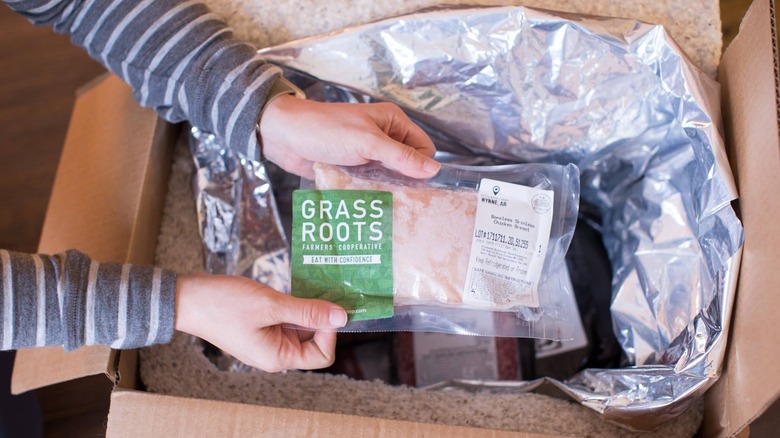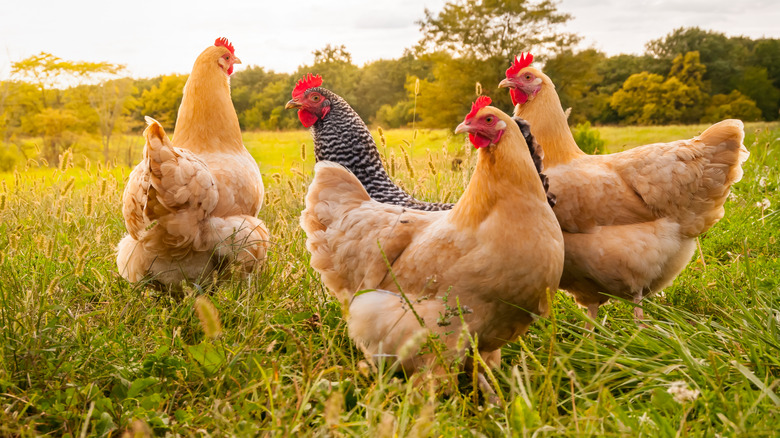Where Is Moink From Shark Tank Today?
In 2019, a new wave of information about the ethical and environmental impact of mass-produced meat products reached a historically wide audience, prompting Forbes to call it "The Year of the Vegan."
Movies like 2014's "Cowspiracy" and 2017's "Okja" — the latter of which follows a group of animal lovers fighting to save a scientifically bred "super pig" from a mega-corporation — may have been instrumental in disrupting millions of heedless purchases in grocery store meat aisles, fostering a new class of eco-conscious consumers. According to a study conducted by Ipsos Retail Performance, nearly 10 million Americans identified as vegan in 2019. That's 30 times more than in 2004, per Food Revolution Network.
When the crowd-funded company Moink appeared on Season 10 of ABC's "Shark Tank" in 2019, the demand for ethically sourced meat — in addition to plant-based meat alternatives — was high. Per its website, the company sells customizable subscription-based boxes with choices like wild-caught salmon, grass-fed and grass-finished beef, pasture-raised pork, grass-fed and grass-finished lamb, and pasture-raised chicken. So, how did the Sharks respond to Moink?
A hearty deal
In "Shark Tank" Season 10, Episode 15, Moink founder Lucinda Cramsey requested $250,000 from the investors in exchange for 10% equity in her environmentally-focused business. Of course, like in every pitch on "Shark Tank," she faced a few unexpected hurdles.
First, this episode featured former "Shark Tank" contestant and Ring Doorbell founder Jamie Siminoff as a Guest Shark. Having sold his business for over $1 billion (via Investor's Business Daily), Siminoff is no stranger to the ins and outs of high-dealing negotiations. After a number of Sharks expressed concern over Moink's high margins, Siminoff offered Cramsey $400,000 for 20% of the company.
While that's more than Cramsey originally asked for, she matched Siminoff with her own reservations: growing her company too quickly. However, she quickly overcame that worry. In a clip of the episode released on YouTube, Cramsey finally resolves to "get 'er done" by shaking hands (or, in this case, exchanging a warm hug) over the deal.
In a Facebook post shared by Moink shortly after the episode aired, Cramsey called Siminoff "a better investor than I could have ever imagined," lauding him as a "true pit bull in our fight for the family farm." Still, even the most promising "Shark Tank" deals can fall victim to unprecedented circumstances. Here's how Moink has fared in the past couple of years.
A big success for small farms
In "Shark Tank" Season 11, Episode 6, Moink founder Lucinda Cramsey appeared in a short "Shark Tank Update" segment, in which Jamie Siminoff visited her small family farm that inspired the business. When Cramsey pitched on "Shark Tank," Moink had seen a total of $815,000 in revenue. Less than a year later, the company was able to bring in $2.8 million. Such an increase in demand meant that Cramsey quickly outgrew her pick-and-pack facility, and the plucky entrepreneur was forced to move her operations to Kansas City.
If Moink sounds like a good deal to you, the subscription-based service is available for purchase online. According to Moink's website, a standard box goes for $159 (with no additional shipping) and includes seven cuts of various meat sourced from family-run farms around the country. The parcels also contain recipe cards and a copy of the Moink-ed magazine, which features more recipes, cooking tips, and information about the farmers whose products are featured in the delivery.
A Carnivore Style review gives the company points for its ethical sourcing, referral program, and user-friendly website, but docks it for its price. On the bright side, subscribers can justify the fee knowing that the farmers get paid significantly higher than employees of large meat plants. Per Forbes, "[Cramsey] pays her farmers a price that allows them to make money, and takes into account the expense of raising an animal the old-fashioned way."
In 2019, Cramsey told Forbes that she hopes to expand the business to grocery stores one day, but she's currently staying focused on growing sales within her online, direct-to-consumer model.


